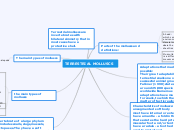TERRESTRIAL MOLLUSCS
Parts of the molluscs and definitions :
A head:
which contains sense organs for exploring their environment
Visceral mass:
where the internal organs are found,is covered with a sheet tissue colled the mantle.
Muscullar foot:
is a different shape for different groups,and used for movement digging or catching prey.
Adaptations that made terrestrial life possible:
Their great adaptability has made terrestrial snails one of the most successful animal groups on the earth: Falkner (1990) states a number of around 25,000 species worldwide.Numerous special adaptations have made this possible for snails, to which the dry land as a matter of fact is really dry.
Characteristics of molluscs:
unsegmented soft body
most have internal or external shell
have a mantle - a fold in the body wall that secretes the hard prtesctive shell
muscular foot and/or tentacles
have a radula - a toothed structure used to grate food
two pairs of gills except in polmonate snails
Terrestrial molluscs are invertebrates with bilateral simmetry that in most cases have a protective shell.
The main types of molluscs
Gastrops
The bivalves and the cephalopods
the main types of molluscs
most of them have a shell coiledin a spiral shape,large muscullar foot,they have a welldeveloped head ,in the mouth they have a scraper organ
If they are terrestrial they breathe with a lung,if they are aquatic they use gills.Most gasthropods are hervibores.
Subtema
